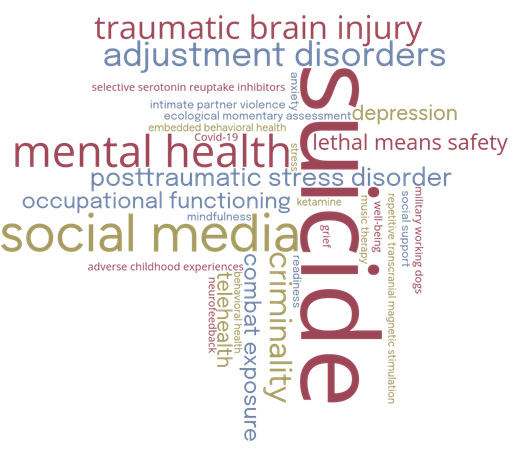Skip subpage navigation
The Psychological Health Center of Excellence creates systematic reviews and rapid reviews. These reviews can help stakeholders in the Military Health System make decisions about psychological health care.
What is a systematic review?
Systematic reviews answer specific questions by evaluating and summarizing existing research. For example, they can help us better understand how safe and effective a health care intervention is. Systematic reviews are different than other types of reviews because they use a transparent and thorough process to identify and evaluate research studies. The Institute of Medicine in 2011 in Finding What Works in Health Care: Standards for Systematic Reviews, Cochrane, and other organizations outline best practices for conducting these reviews.
What is a rapid review?
Systematic reviews are considered one of the best ways to synthesize evidence. They provide comprehensive, thoroughly researched summaries of current science. They are extremely helpful in informing health care practices and policies that are supported by scientific research. They can, however, require several resources and take up to several years to complete. Alternatively, “rapid reviews” can be conducted when evidence summaries are needed within a shorter timeframe.
Unlike systematic reviews, rapid reviews don’t follow a standard set of methods. Instead, they modify traditional systematic review procedures to reduce the amount of time and resources needed. The table below shows some potential modifications. Rapid reviews differ depending on the stakeholder's goal, the topic’s scope, and the amount of time available to complete the review.
Expediting the Systematic Review Process
| |
Systematic Reviews
|
Rapid Reviews
|
|
Time to Complete
|
12 months–several years
|
1–6 months
|
|
Review Topic
|
Comprehensive key questions addressing effectiveness, safety, cost, etc.
|
Limited number and complexity of key questions
|
|
Search Strategy
|
Sensitive, systematic search for published and grey literature
|
Abbreviated search using a limited number of databases and resources
May apply restrictions limiting results to certain publication dates, study types, language, etc.
|
|
Screen and Select
|
Inclusive, pre-defined criteria for inclusion
Two reviewers concurrently reviewing and selecting studies
Meticulous review of full-text articles and extraction of multiple data elements
|
Narrow criteria for inclusion, which may be iteratively redefined based on search results
Single reviewer screening and selection of studies
Limited data elements for extraction
|
|
Synthesis and Conclusions
|
Qualitative and quantitative synthesis of findings
May include meta-analysis
Comprehensive critical appraisal of individual studies and quality of evidence assessment
|
Descriptive summary of findings
Characteristics of included studies
May include critical appraisal of individual study designs
|
How does PHCoE conduct reviews?
PHCoE receives topics of interest for evidence synthesis from leaders and decision-makers across the MHS. A team of PHCoE staff works with the requestor to refine key questions and devise a protocol for conducting the review. The PHCoE team then executes the agreed upon methodology to produce the report. In the past several years, our reviews have focused on the topics presented in the graphic below.

Recent Reviews
View peer-reviewed publications:
View full report:
Reviews funded by PHCoE
Some of the reviews listed below may now be outdated. Because more recent literature could have changed the state of the evidence, you should interpret these reports with caution.
Systematic Reviews of Psychological Health Research to Address Gaps in Practice (Southern California EPC – RAND Corporation)
View full reports:
View peer reviewed publication:
- Clinical interventions for adults with co-morbid alcohol use and depressive disorders (link to come)
Meditation-based Interventions (Southern California EPC – RAND Corporation)
View full reports:
Needle Acupuncture Interventions (Southern California EPC – RAND Corporation)
View full reports:
You are leaving Health.mil
The appearance of hyperlinks does not constitute endorsement by the Department of Defense of non-U.S. Government sites or the information, products, or services contained therein. Although the Defense Health Agency may or may not use these sites as additional distribution channels for Department of Defense information, it does not exercise editorial control over all of the information that you may find at these locations. Such links are provided consistent with the stated purpose of this website.
You are leaving Health.mil
View the external links disclaimer.
Last Updated: April 16, 2024